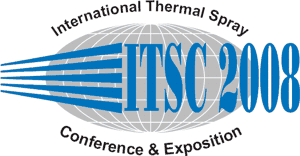
|
| Abstract No.: |
|
Scheduled at:
|
Tuesday, June 03, 2008, Room 05 12:30 PM
Case Studies and Further Applications 1
Showing the broad variety of thermal spraying in different examples, special processes and also specialized materials apart from standard coatings offer new possibilities and also new markets
|
|
| Title: |
Hot corrosion and high temperature oxidation performance of WC-Co coatings by detonation gun spray on a boiler steel
|
|
| Authors: |
Harpreet Singh Saheet* / BBSB Engineering College, FATEHGARH SAHIB, INDIA
Manpreet Kaur / BBSB Engineering College, INDIA
Satya Prakash/ Indian Institute of Technology, INDIA
|
|
| Abstract: |
Detonation-gun spray technology is a novel coating deposition process which is capable of achieving very high gas and particle velocities approaching 4-5 times the speed of sound, and hence provides the possibility of producing high hardness coatings with excellent adherence strength. In the present study, this technique has been used to deposit WC-Co coatings on T22 boiler steel. Subsequently, oxidation performance of detonation-sprayed WC-Co coatings in air, as well as, in a molten salt environment (Na2SO4- 82% Fe2 (SO4)3) has been evaluated at 700°C under cyclic conditions. The thermogravimetric technique has been used to establish the kinetics of corrosion. The uncoated boiler steel suffered a catastrophic corrosion in the form of intense spalling of the scale during air, as well as, molten salt induced oxidation. The WC-Co coated specimens showed lesser overall weight gains in comparison to their uncoated counterparts in both the environments. The oxidation kinetics for the coated specimens followed nearly the parabolic rate law of oxidation in both the environments. The rate of oxidation has been found to be higher in case of air as compared to that in salt environment in all the cases. Scanning electron microscopy/energy-dispersive analysis techniques were used to analyse the corrosion products, which showed the formation of W2O3 as a main phase in the oxide scales of coated steel in both the environments.
|
|
